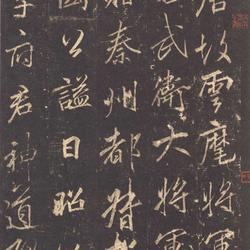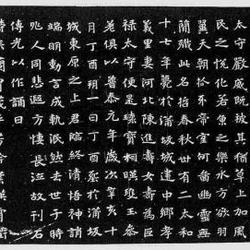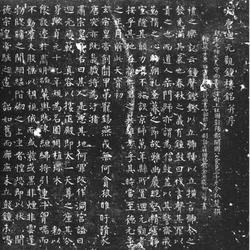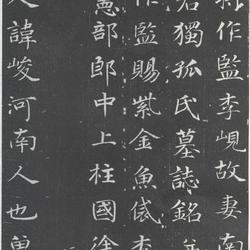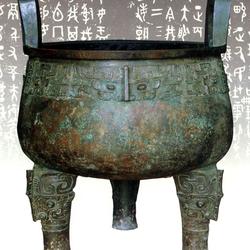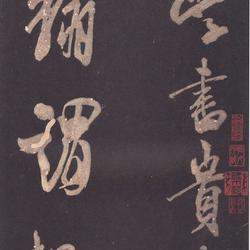Xie Jin (1369-1415), also known as Dashen, also known as Jinshen. A native of Jishui County, Jiangxi Province. Ming beginners and writers. Xie Jin was born with extraordinary beauty and extraordinary intelligence. His mother painted the ground and made calligraphy, and taught him how to calligraphy when he was in his infancy. Xie Jin lived in the three dynasties of Ming Taizu, Jianwen Emperor and Chengzu, and had a tortuous official career. In the 21st year of Hongwu (1388), he was awarded the title of Jinshi and was awarded Zhongshu Shujishi. At first, he was deeply loved by Zhu Yuanzhang. Later, Zhu Yuanzhang was dismissed from office because he angered Zhu Yuanzhang because of his "resistance and daring to speak out". Jianwen Emperor Zhu Yunwen began to serve as an official again after he came to the throne. In the early Ming Dynasty, the internal struggles of the ruling class were complicated and the political situation was dangerous. However, Xie Jin was naturally upright and could not be tolerated by Zhu Di, the founder of the Ming Dynasty. In the fifth year of Yongle's reign (1407), he was banished to Guangxi on the grounds that "the Chinese language was banned" and "the examination papers were unfair". In the eighth year of Yongle (1410), he went to Beijing (today's Nanjing) to play an important role. It happened that Emperor Chengzu was out, but when he returned to see the prince, he was actually imprisoned for the crime of "no courtesy", and was tortured, plundered and tortured. In the thirteenth year of Yongle's reign (1415), Xie Jin was buried alive in the snow by the Jin Yiwei commander Jigang and died. He was only forty-seven years old. Born in his family, his wife's clan moved to Liaodong. His posthumous title was Wenyi.
Xie Jin's talent was unrestrained and he could not stop writing. The most commendable achievement of Xie Jin's life was presiding over the compilation of "Yongle Dadian". As early as when he entered the imperial court, he proposed to Zhu Yuanzhang the compilation of a large-scale book. Although it was not taken seriously at the time, he still proposed the system, guiding ideology and specific requirements of the book. It was not until the first year of Yongle (1403) that Chengzu issued an edict to compile it. Initially, more than 100 people were led by Xie Jin, and it took one year to complete, and it was named "The Dacheng of Documents". Chengzu felt that the content was not broad enough, so he appointed Yao Guangxiao and Liu Jichi as supervisors, mobilized more than 2,100 Confucian officials and scribes, and revised it again. It took five years and was completed in the winter of the sixth year of Yongle (1408). After it was completed, it was renamed "Yongle Dadian" by Chengzu. "Yongle Dadian" has a total volume of 22,877 volumes, a catalog of 60 volumes, and is packed into 12,000 volumes. It has collected seven to eight thousand kinds of ancient and modern books, totaling about 370 million words. The content is complex, large and small. After the "Yongle Dadian", only the "Sikuquanshu" compiled during the Qianlong period of the Qing Dynasty surpassed it in scale.
Xie Jin was a famous calligrapher in the early Ming Dynasty. He was good at both regular script and cursive script, and his penmanship was exquisite and unexpected. Jie Jin liked to write Kuangcao, and his cursive writing was the first of its kind in the late Ming Dynasty. He Qiaoyuan of the Ming Dynasty said in "Mingshan Zang": "Jin learned calligraphy from Wei Su and Zhou Boqi. His calligraphy is proud and elegant, and his spirit is doubled." This fully understands the achievements of Jin's calligraphy.
Xie Jin's "Cursive Script Poems of Tang and Song Dynasties", now in the collection of the Palace Museum, Beijing. The writing throughout the article is like a galloping horse, wild and continuous, twisting and turning. The text is almost unreadable, but it has a strong visual effect. Therefore, later generations of scholars believed that his cursive script did not abide by the law: "The wild cursive script was famous for a while, but it was incompetent and full of bad writing. Yang used Xiu Mu as a talisman to control the house." In fact, Xie Jin was not a person who did not understand the law. It was just that at that time, Taige style Under the mainstream of the mainstream, and copying the "Dadian" all day long, this kind of emotional depression, once it can be vented in the carrier of cursive script, it will be out of control. Therefore, Xie Jin's calligraphy should not be determined by one work at a time. His multiplicity is closely related to his living environment.
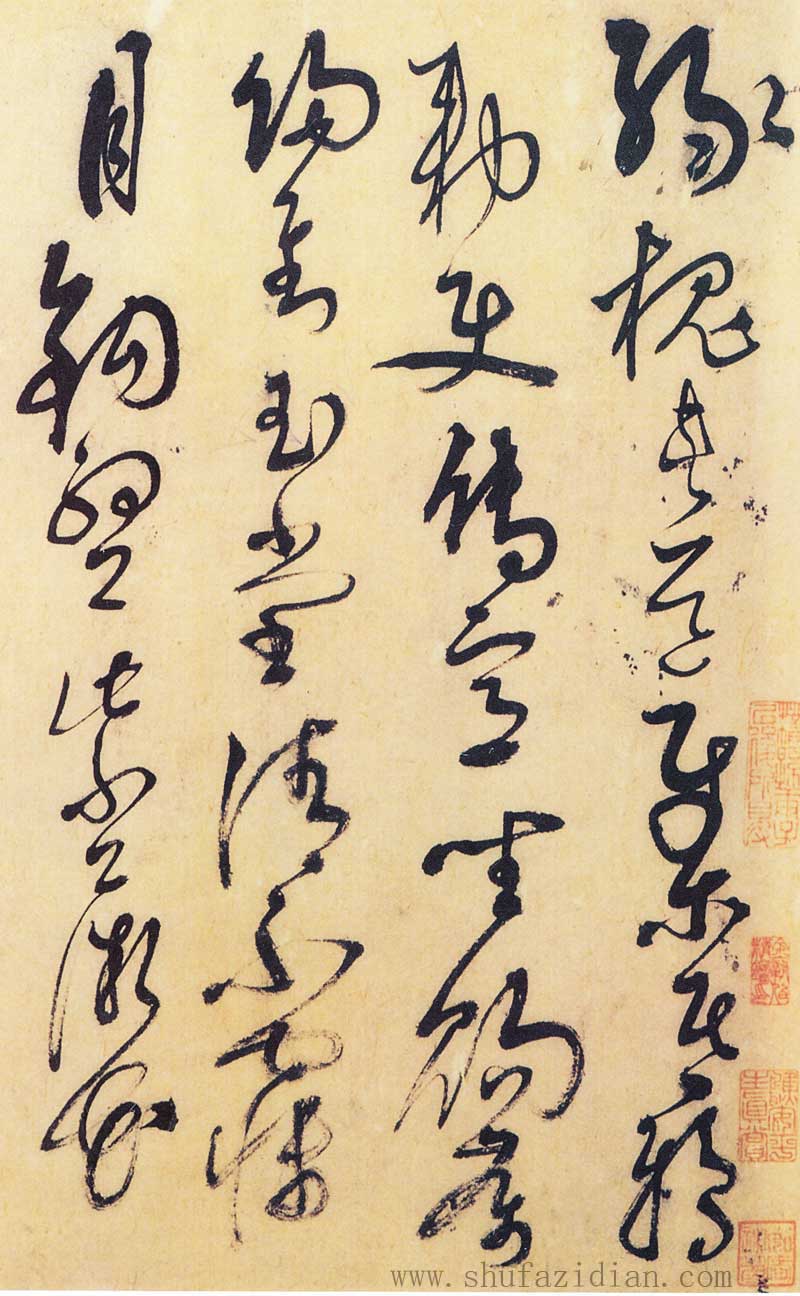
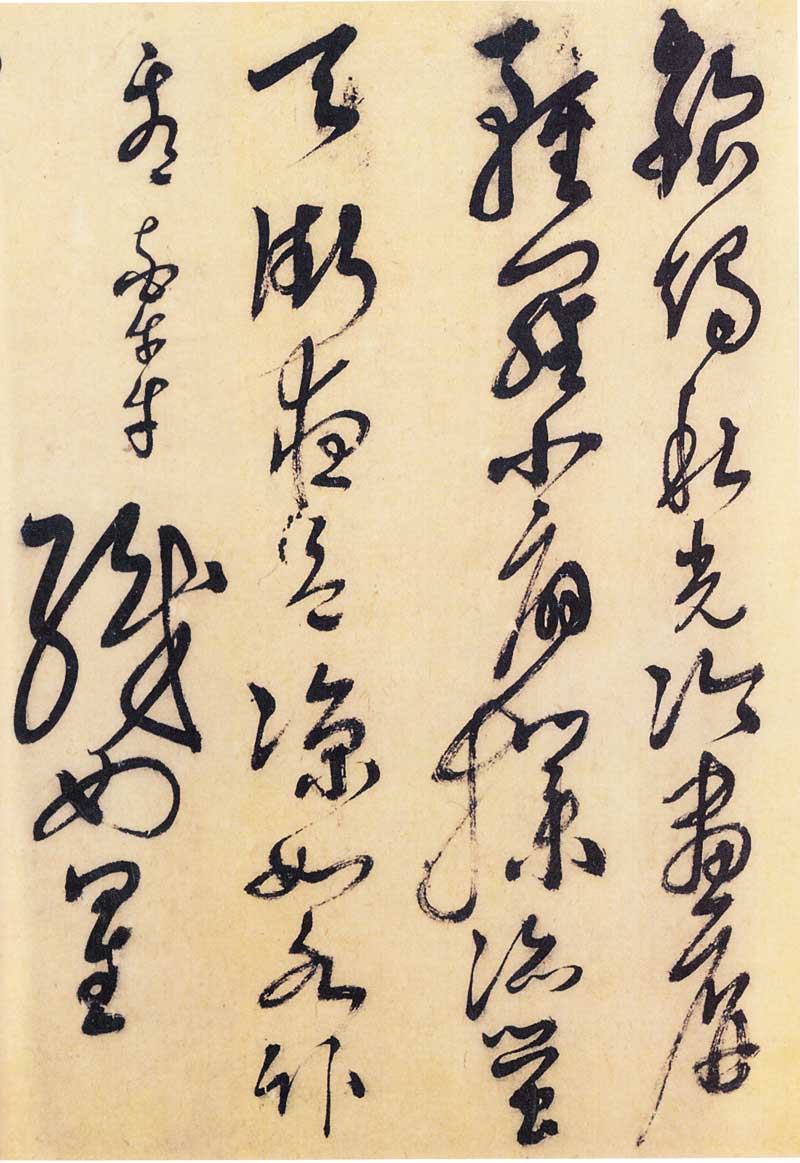
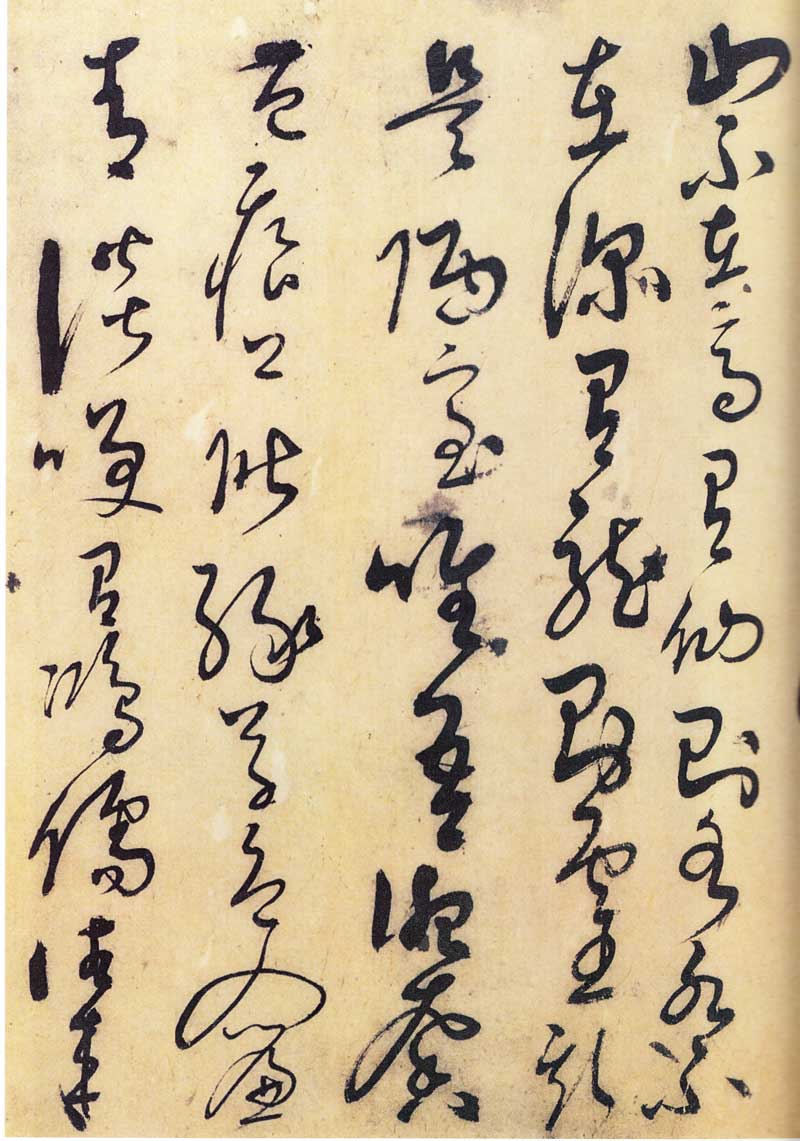
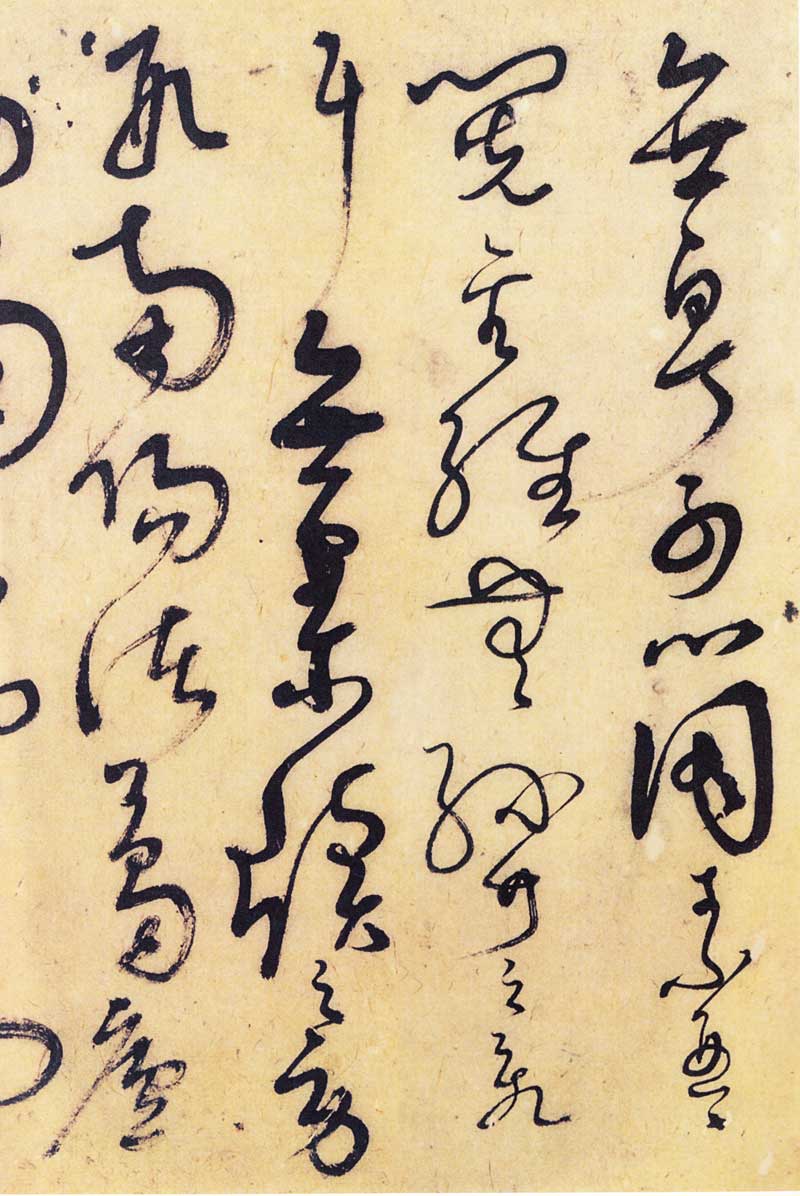
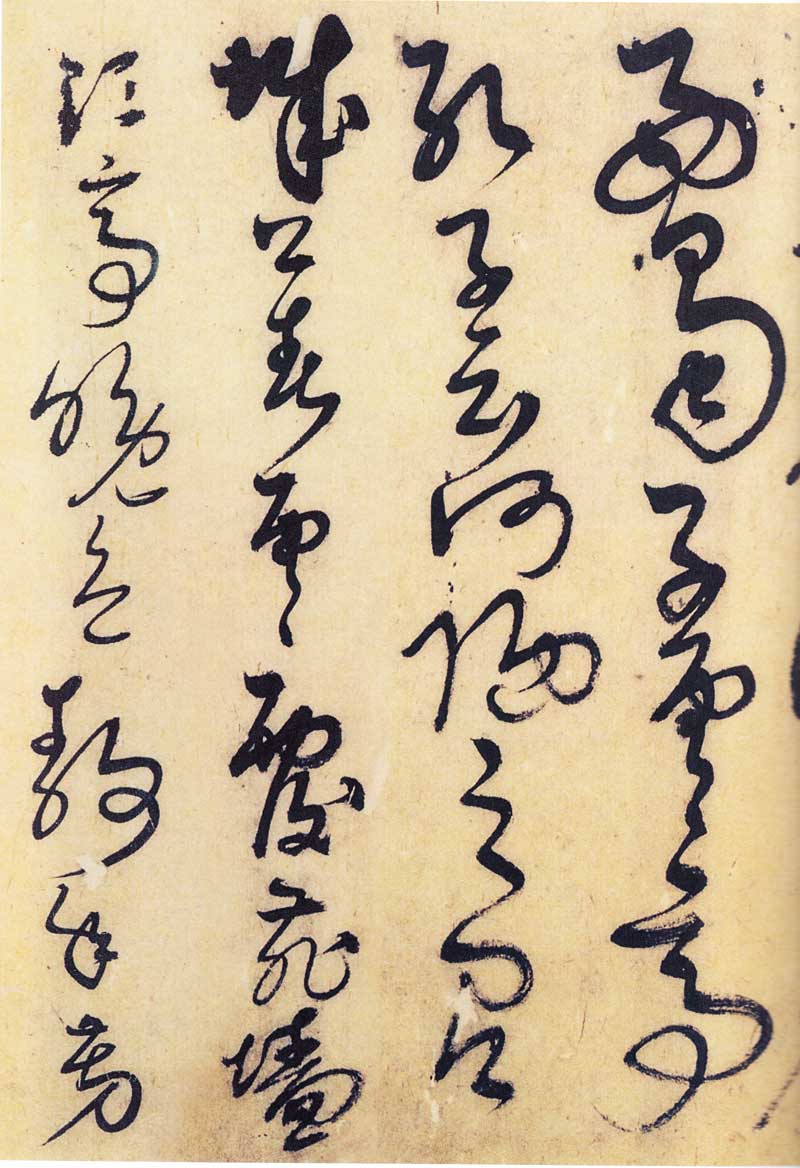
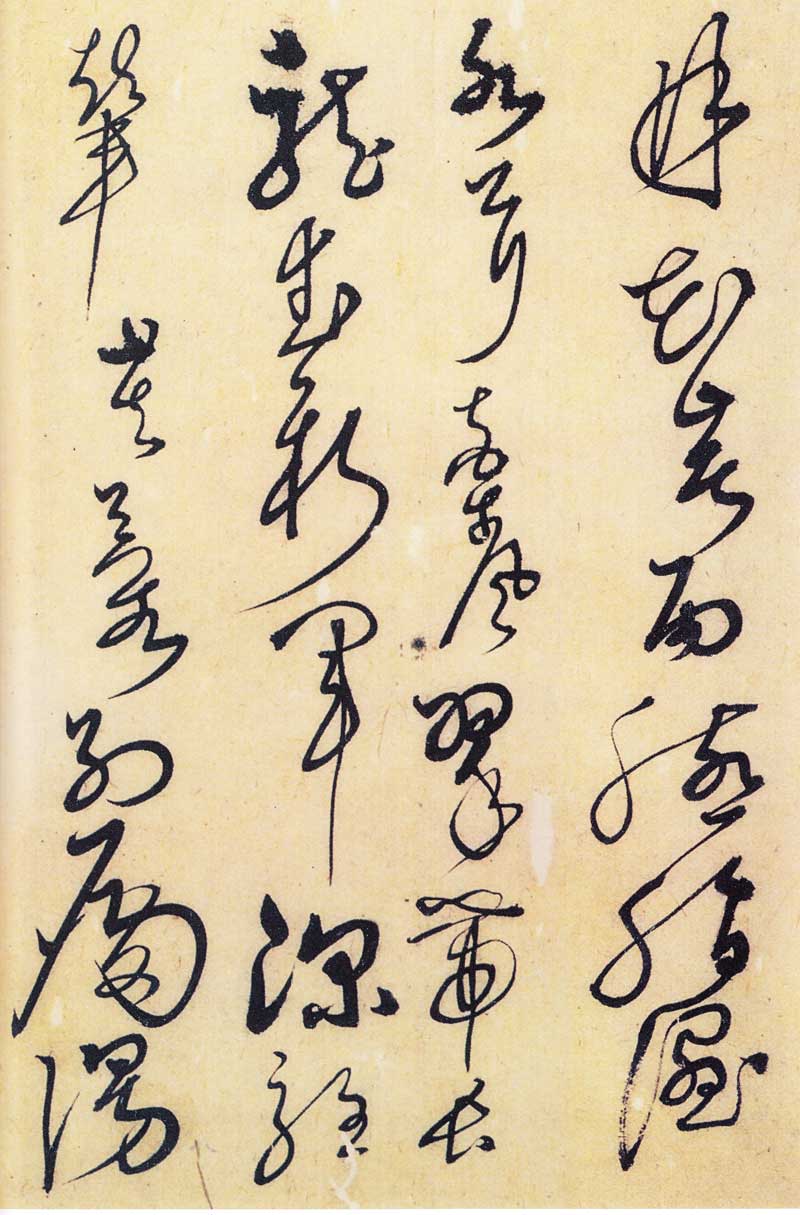
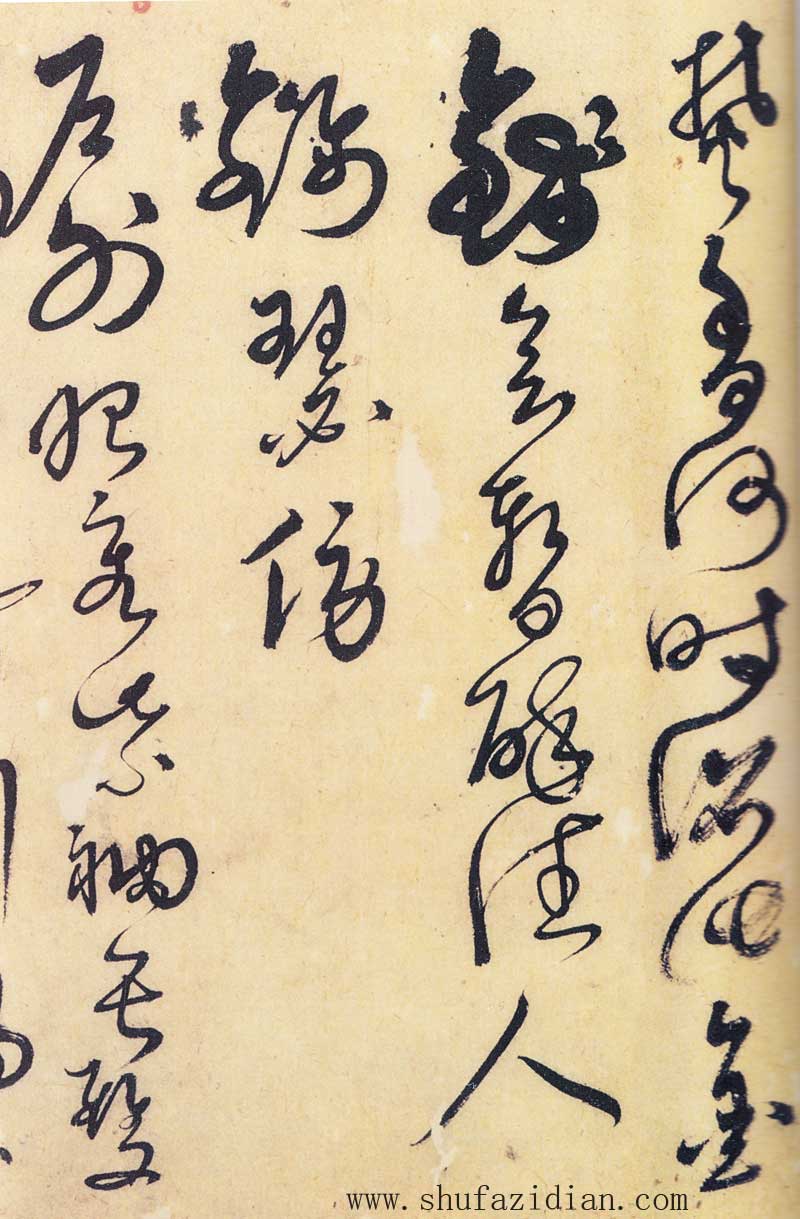
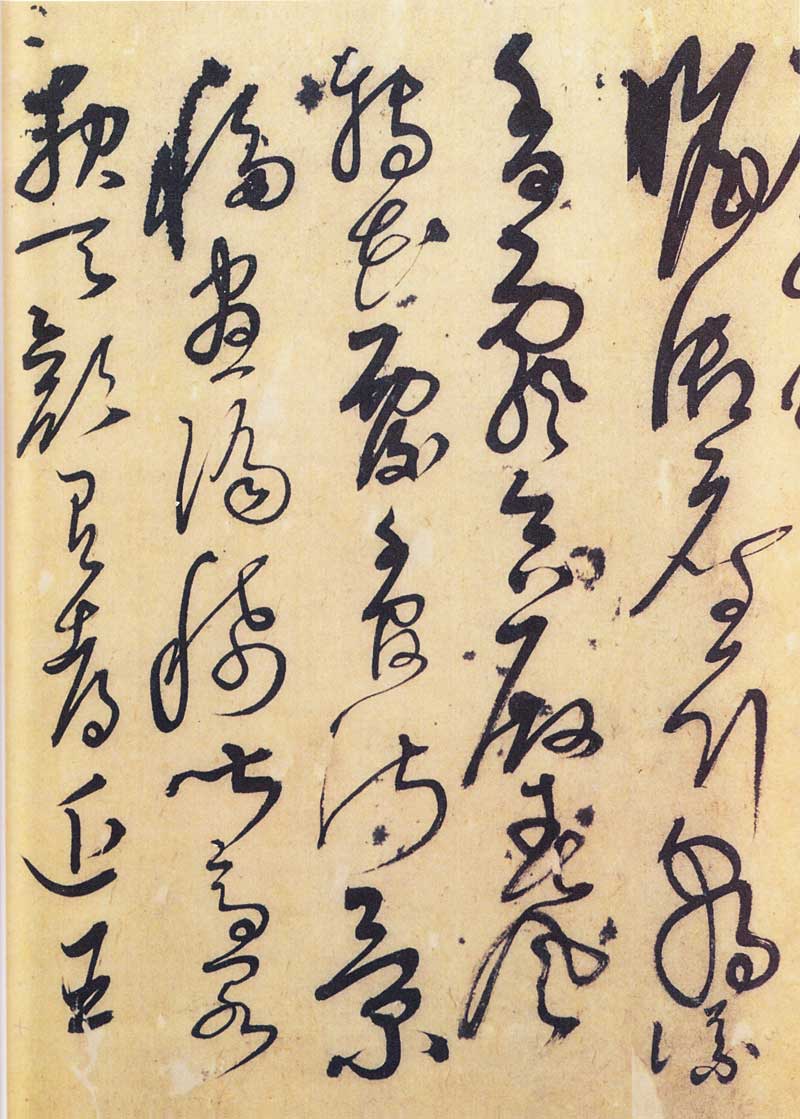
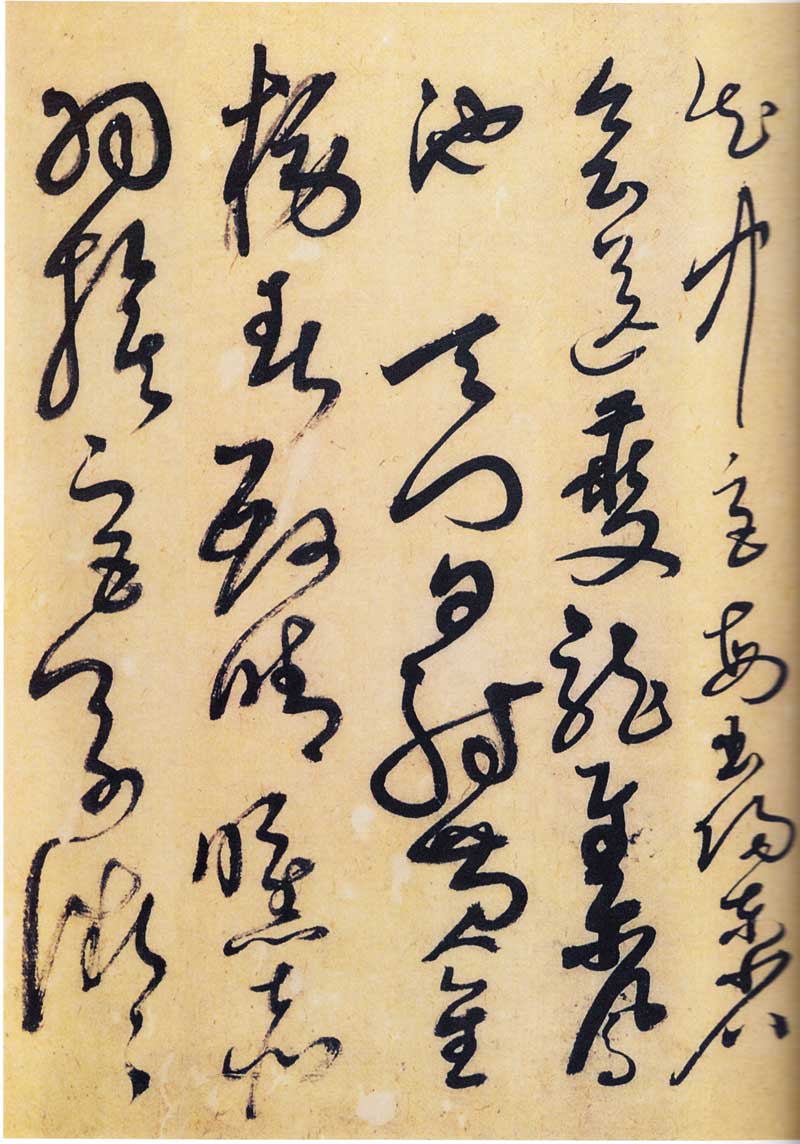
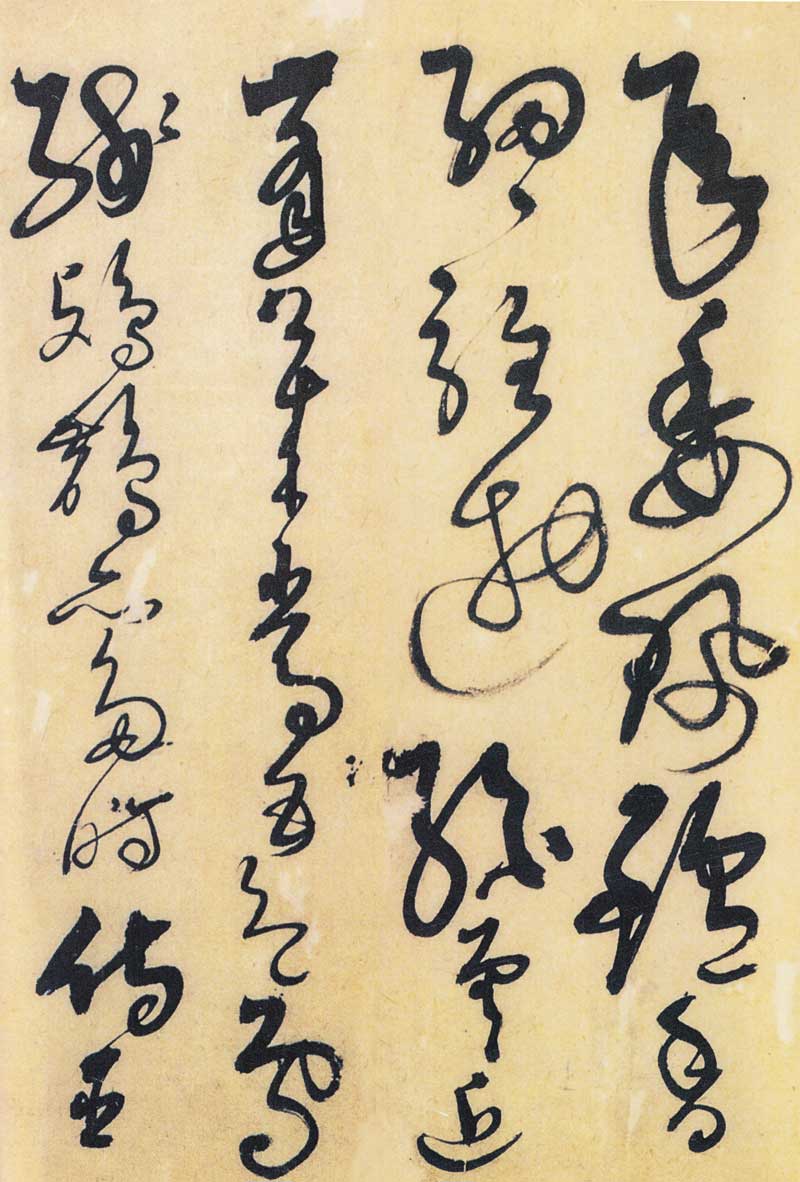
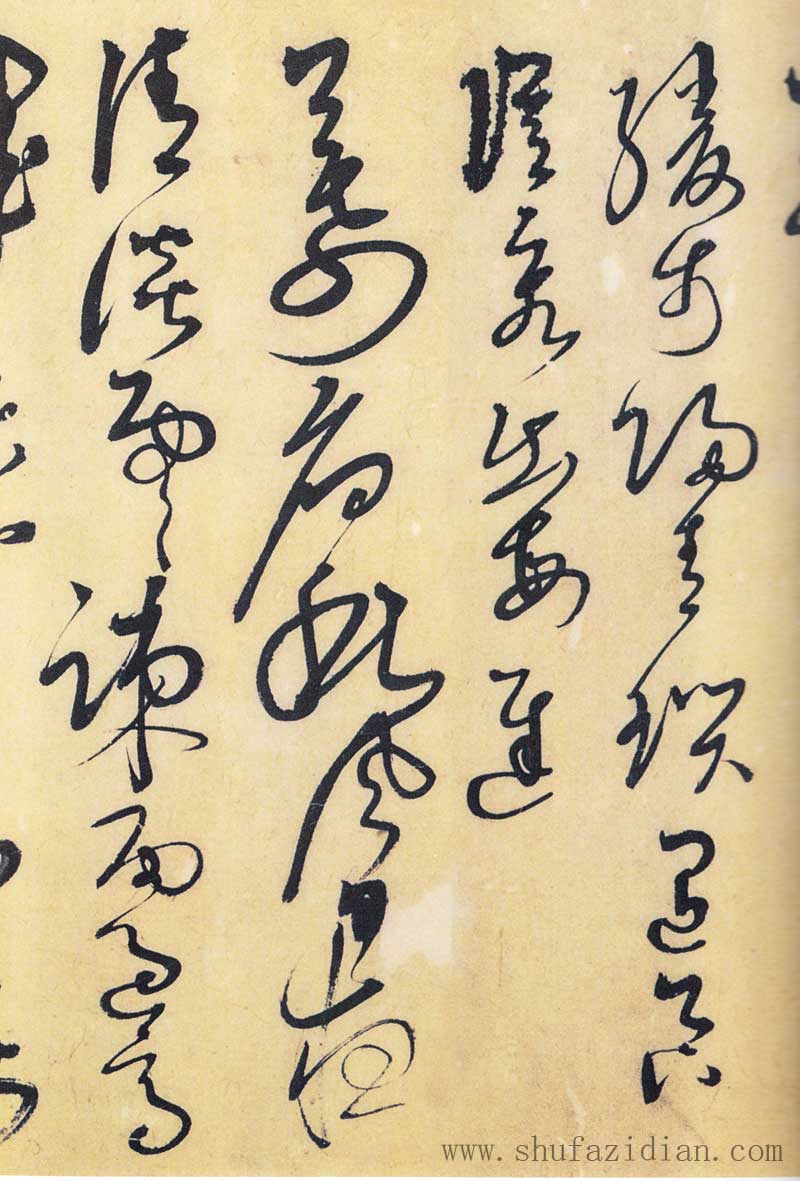
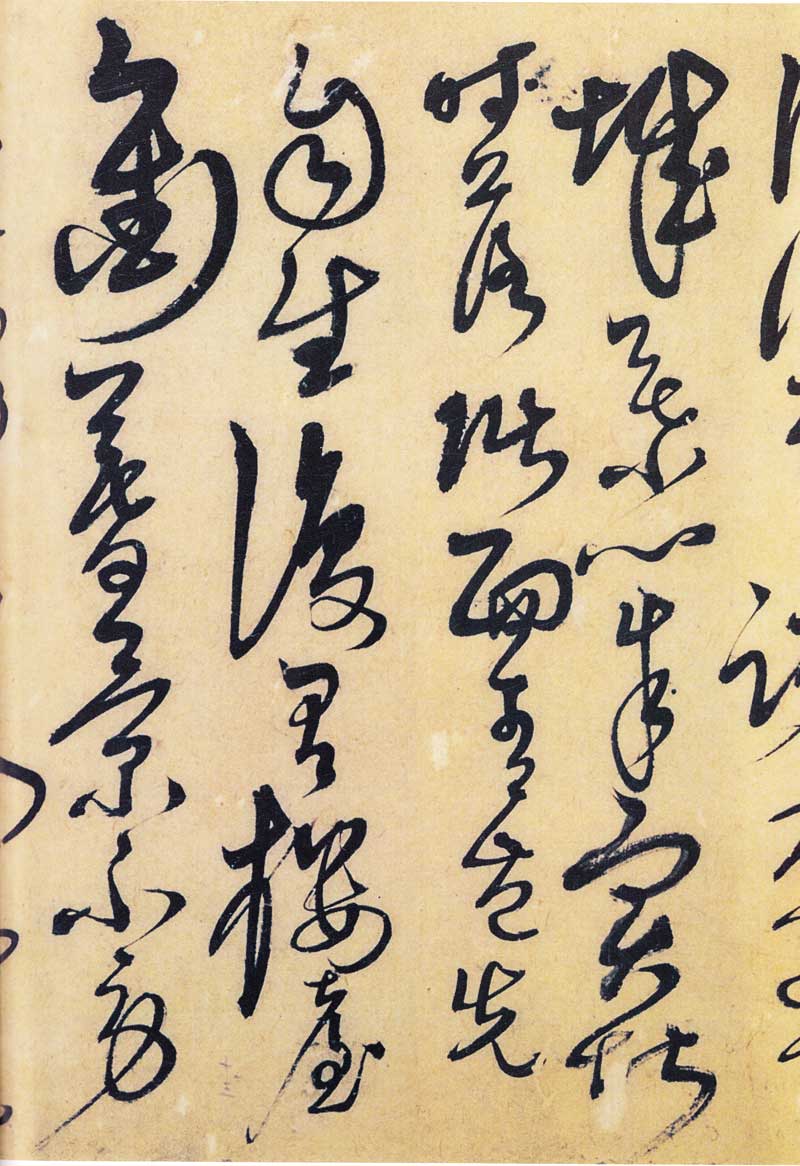
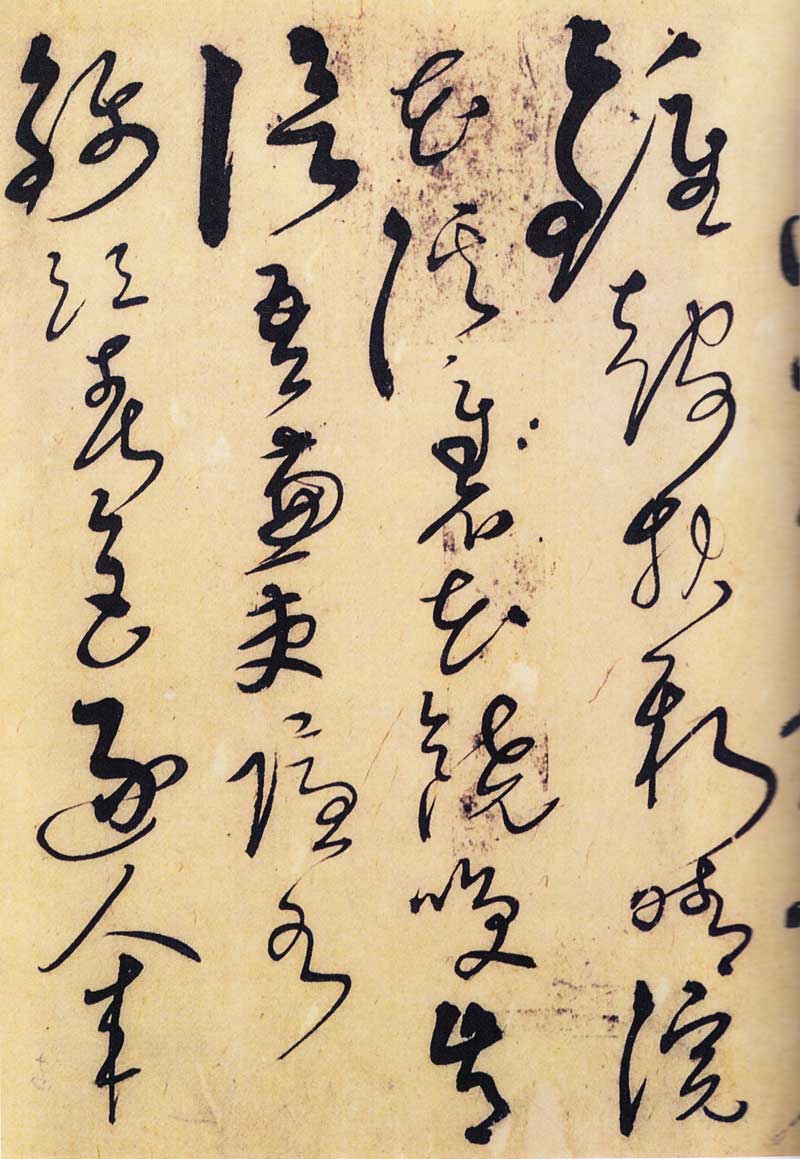
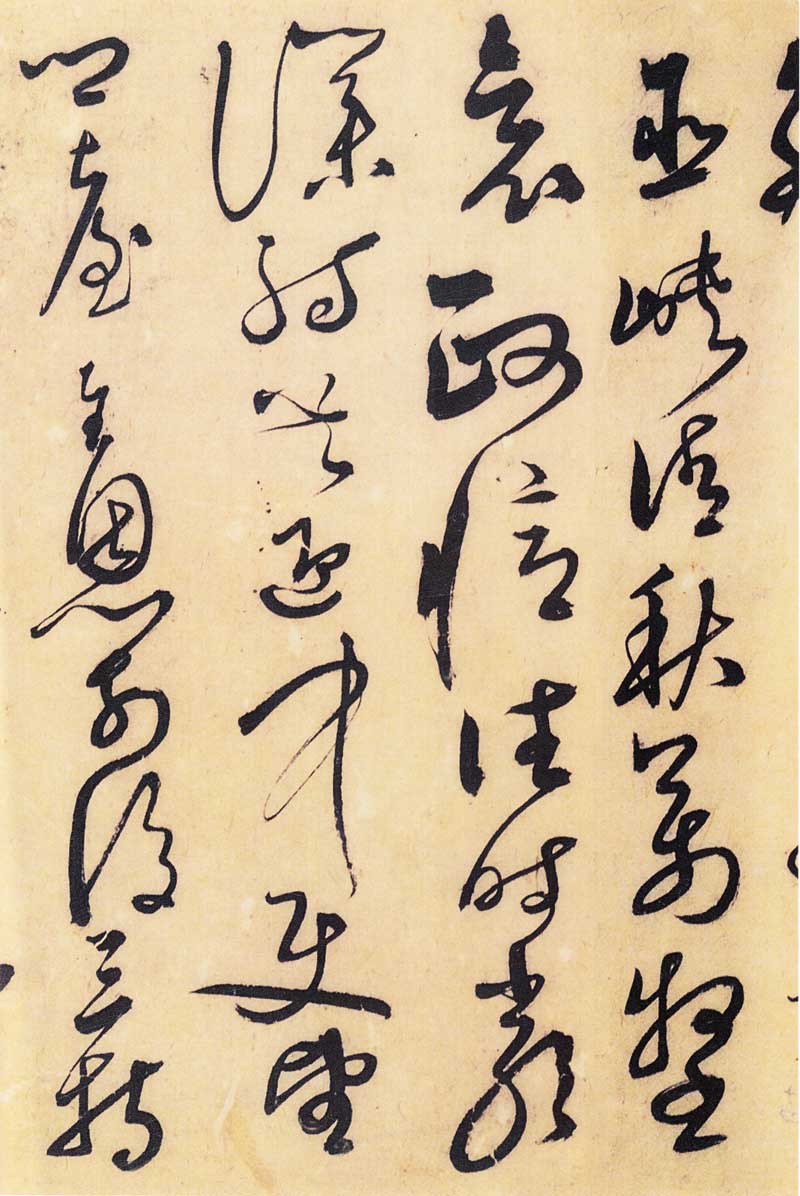
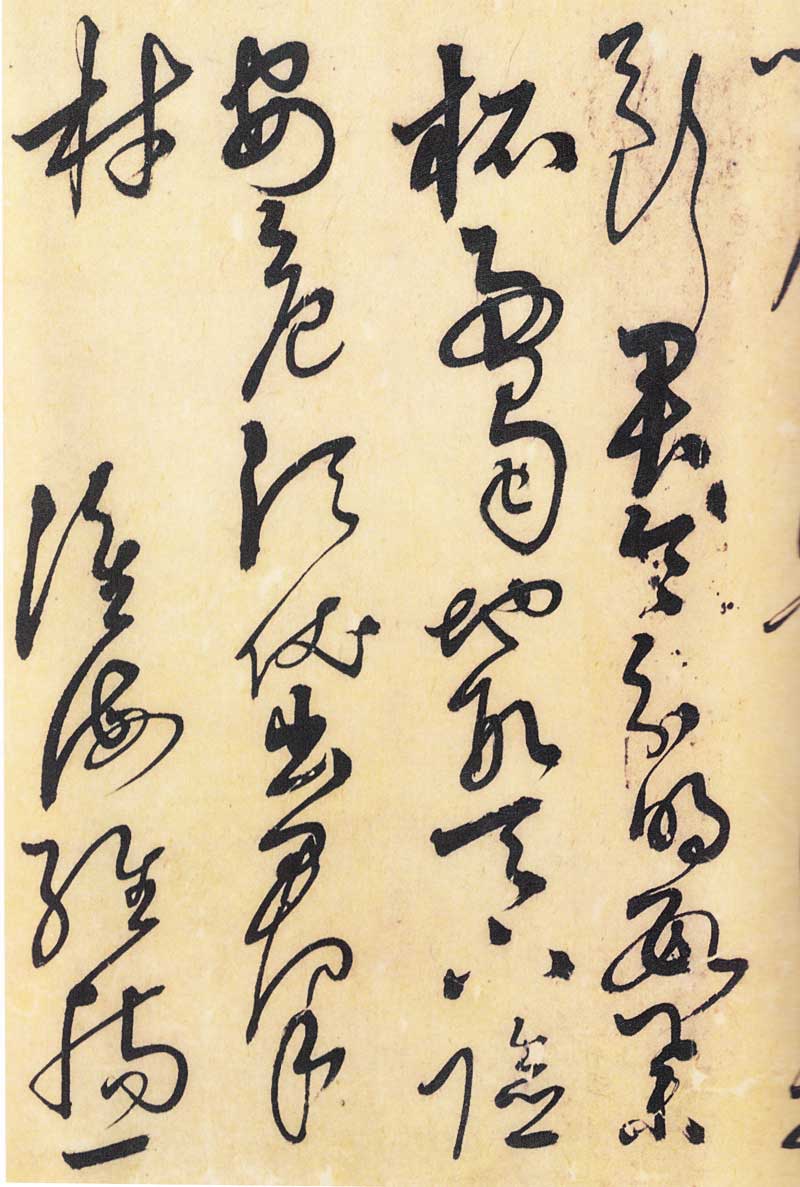
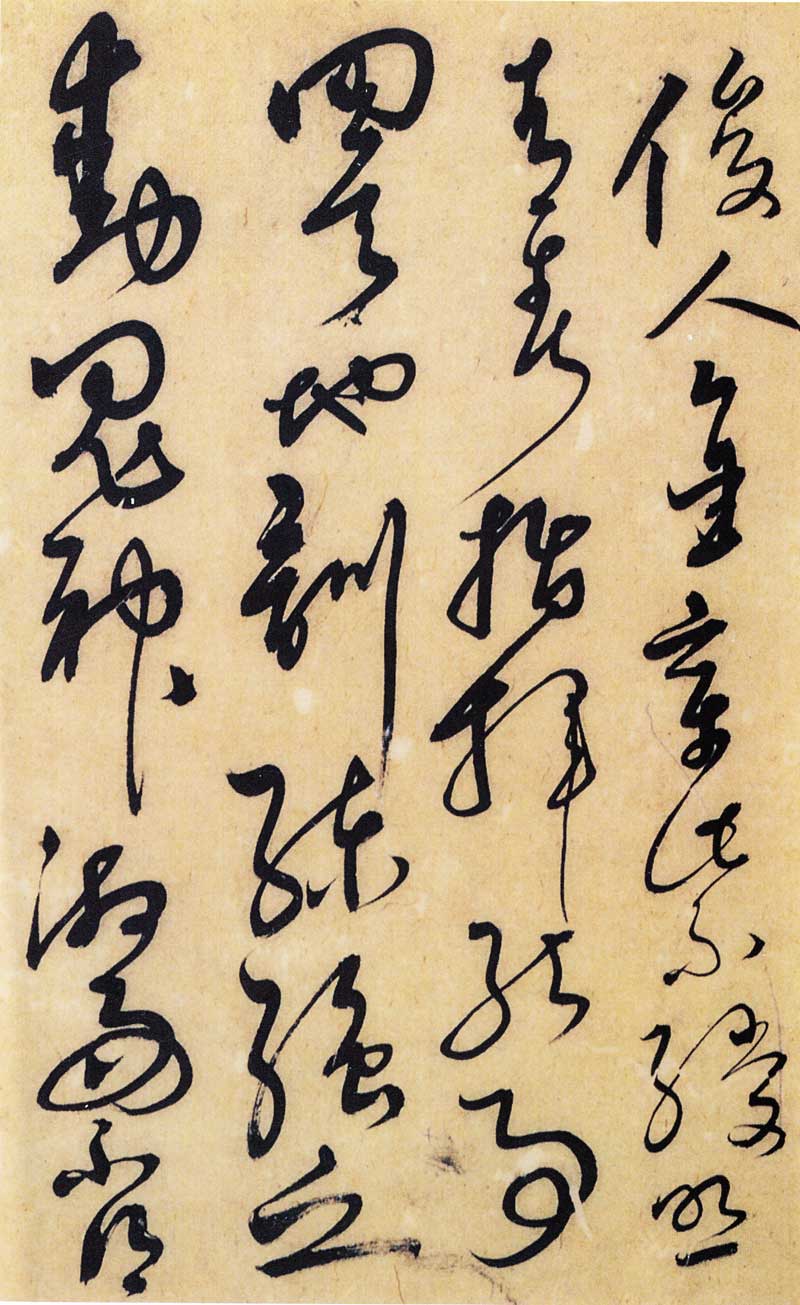
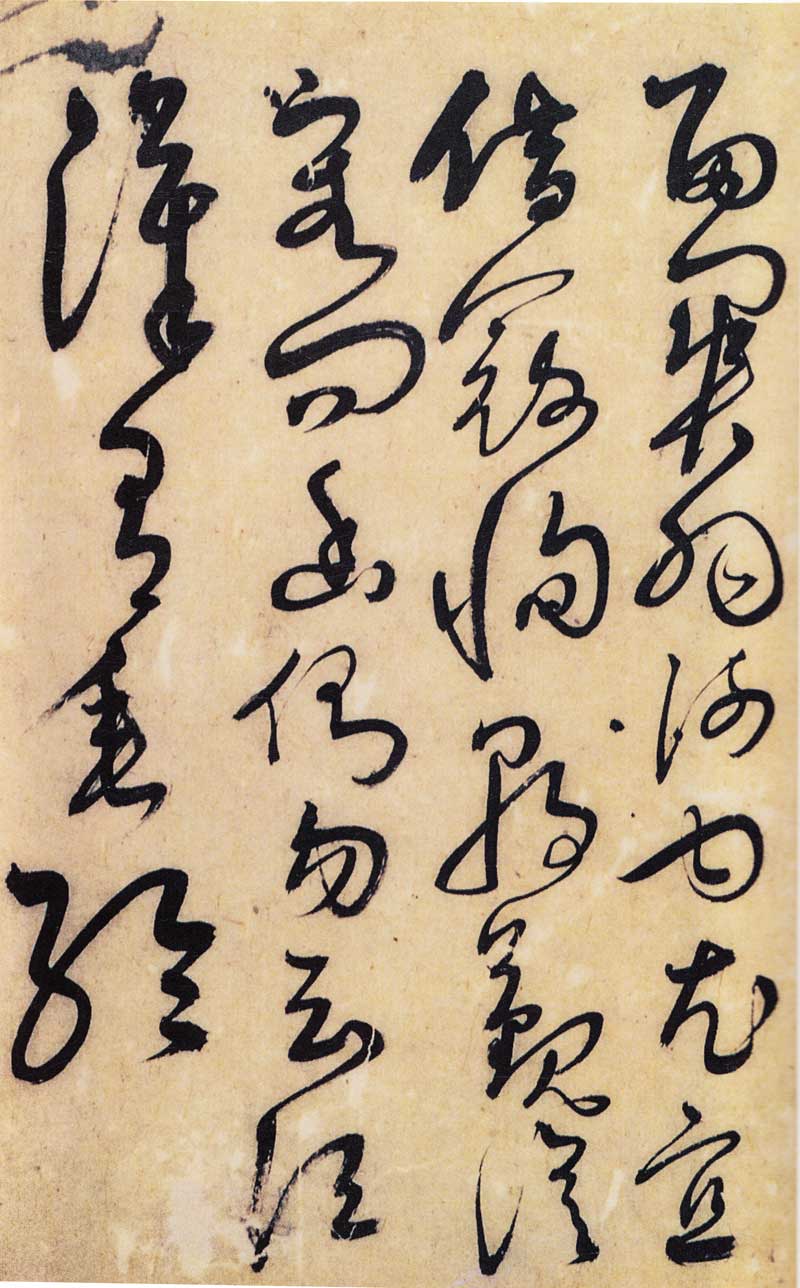
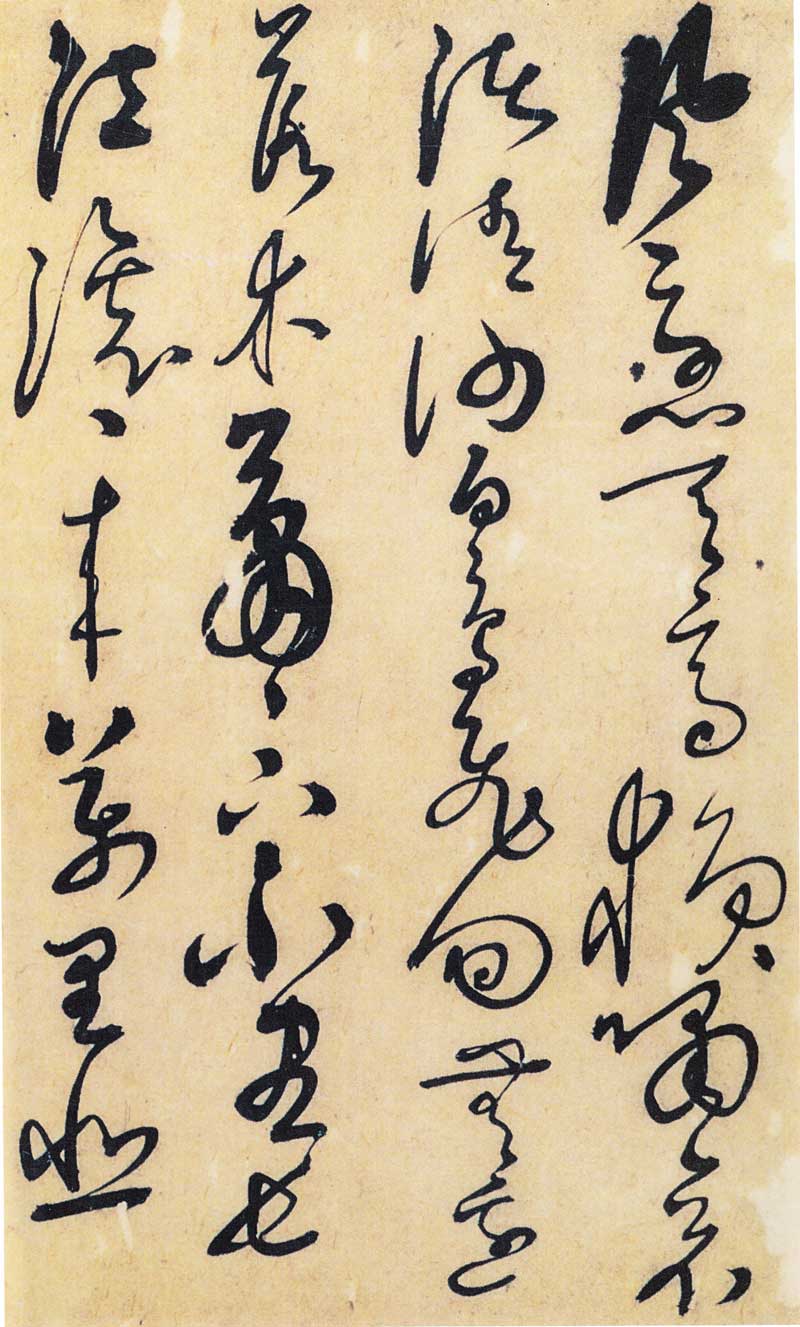
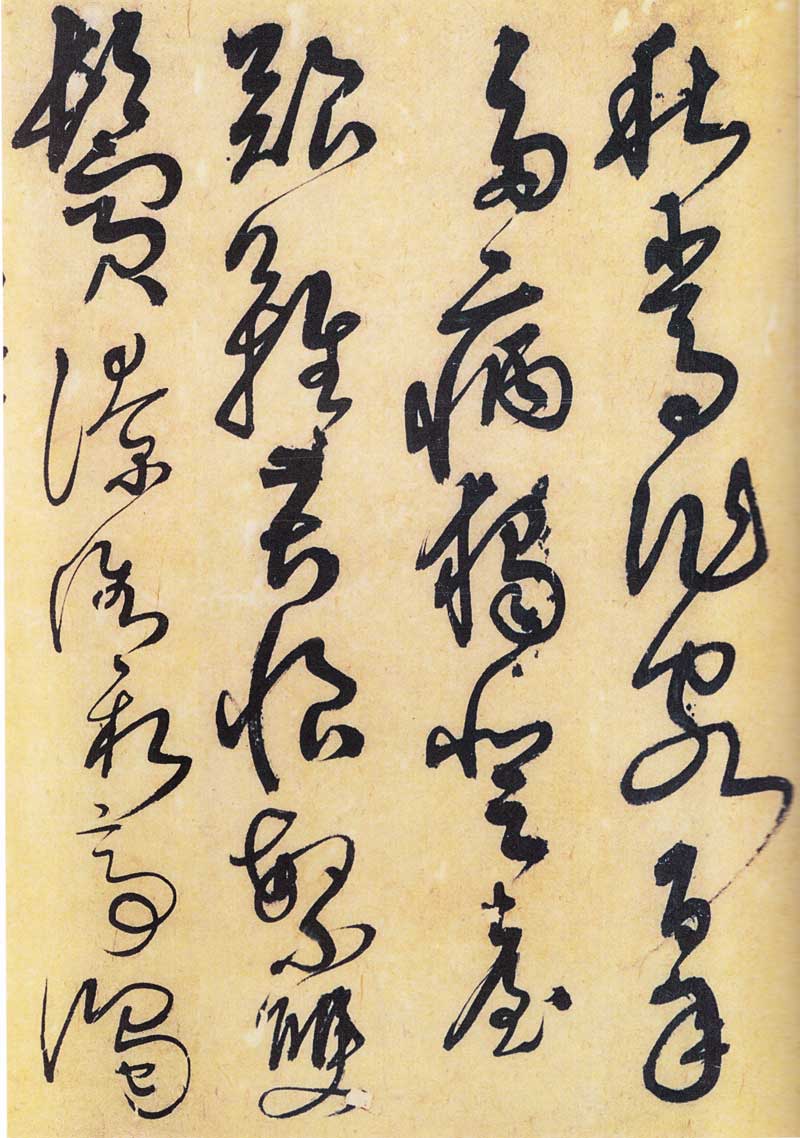
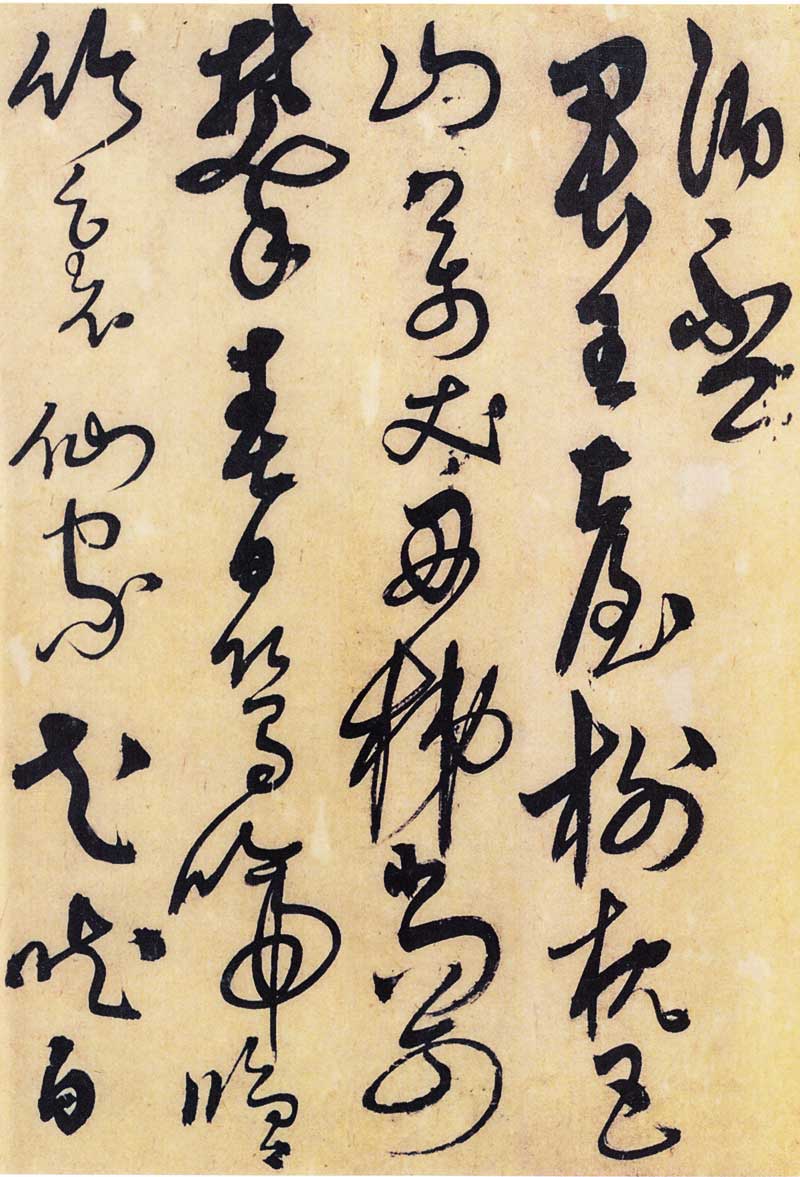
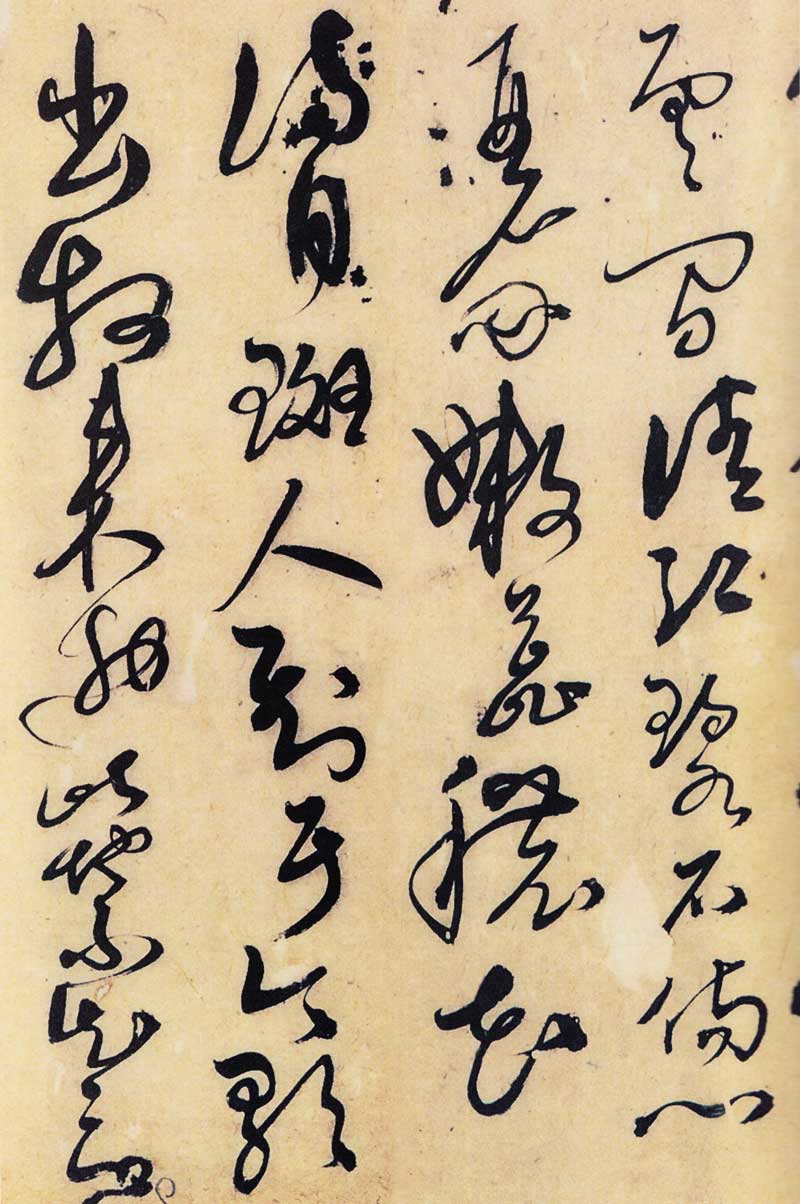
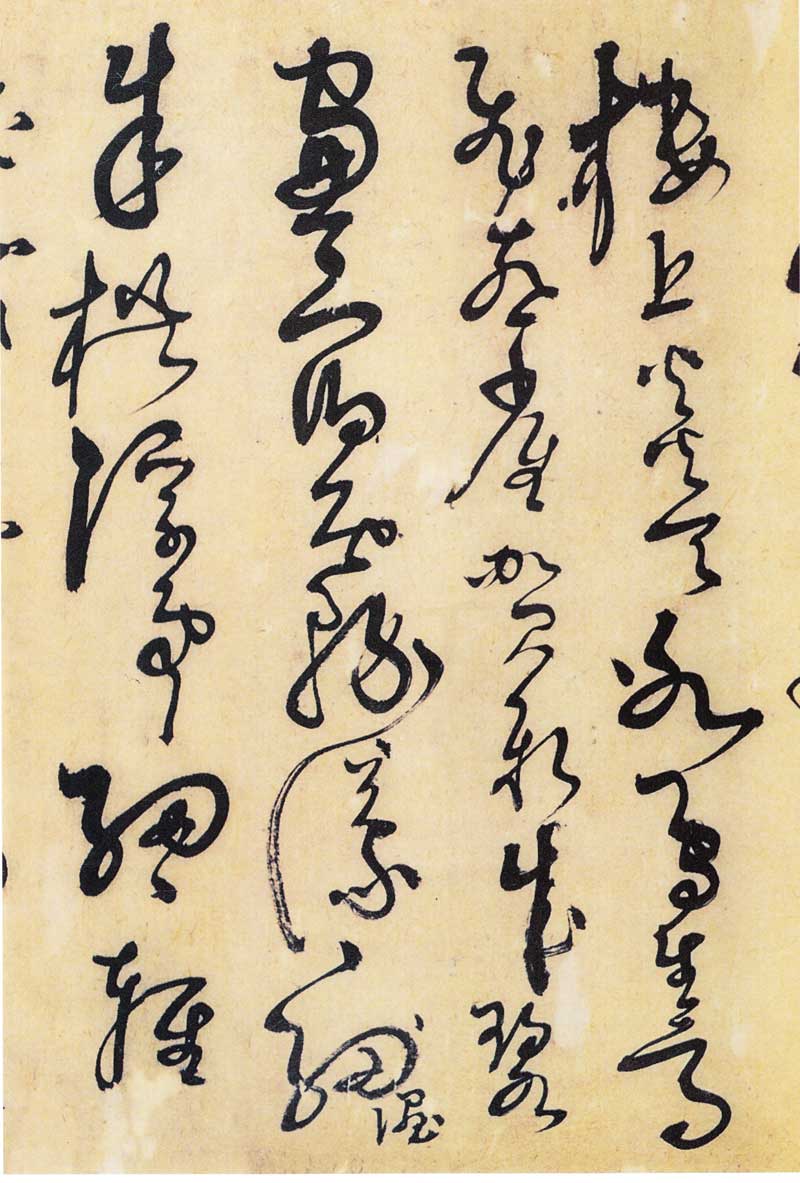
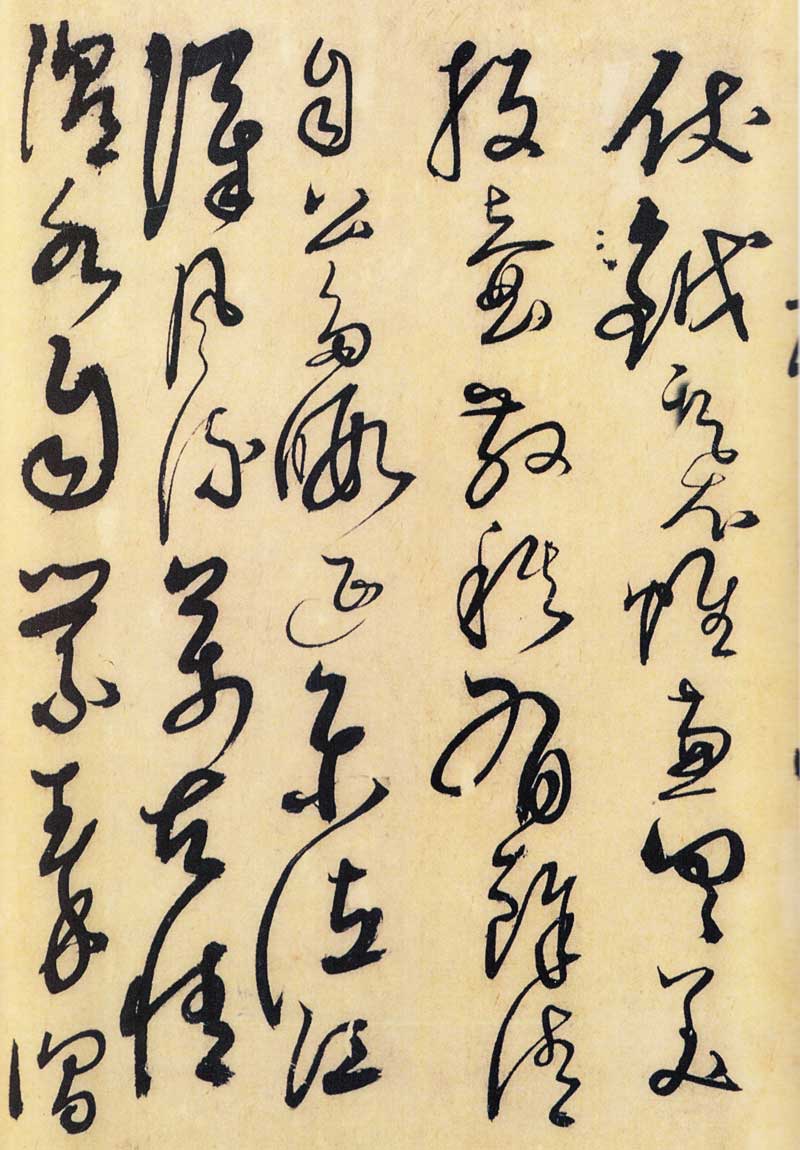
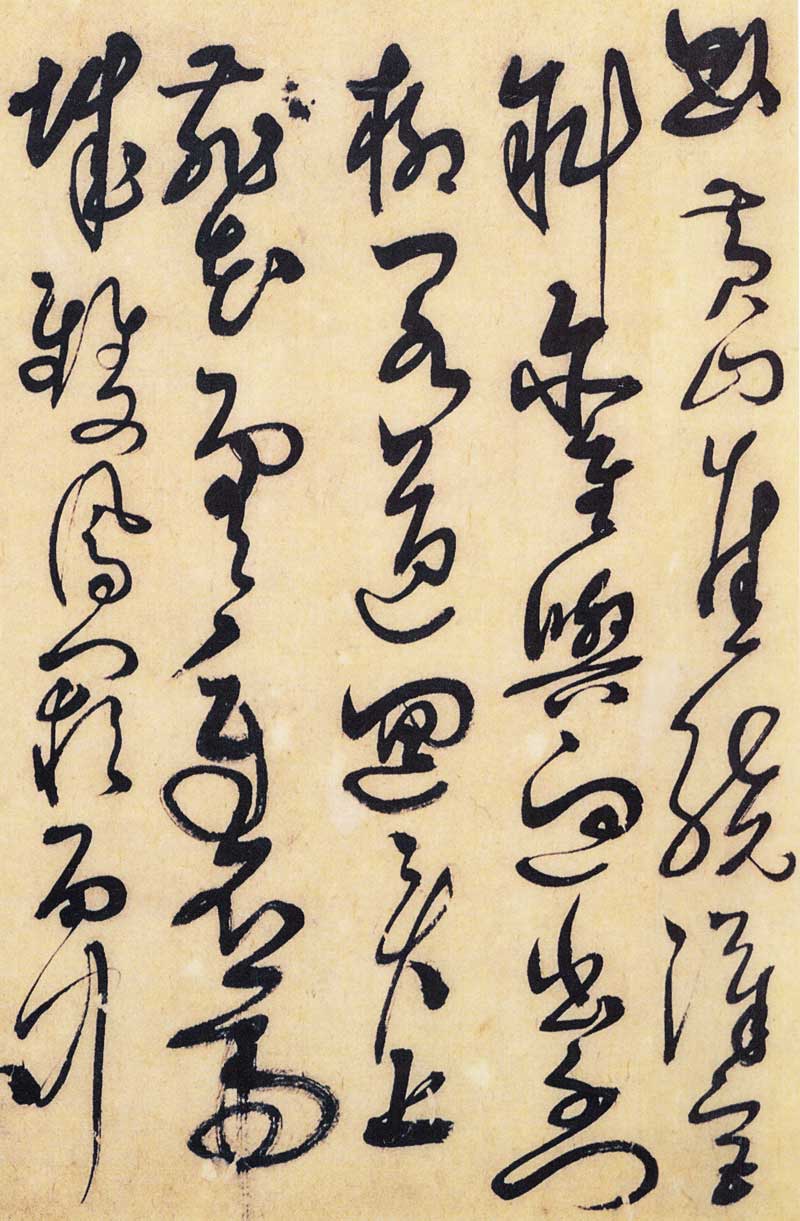
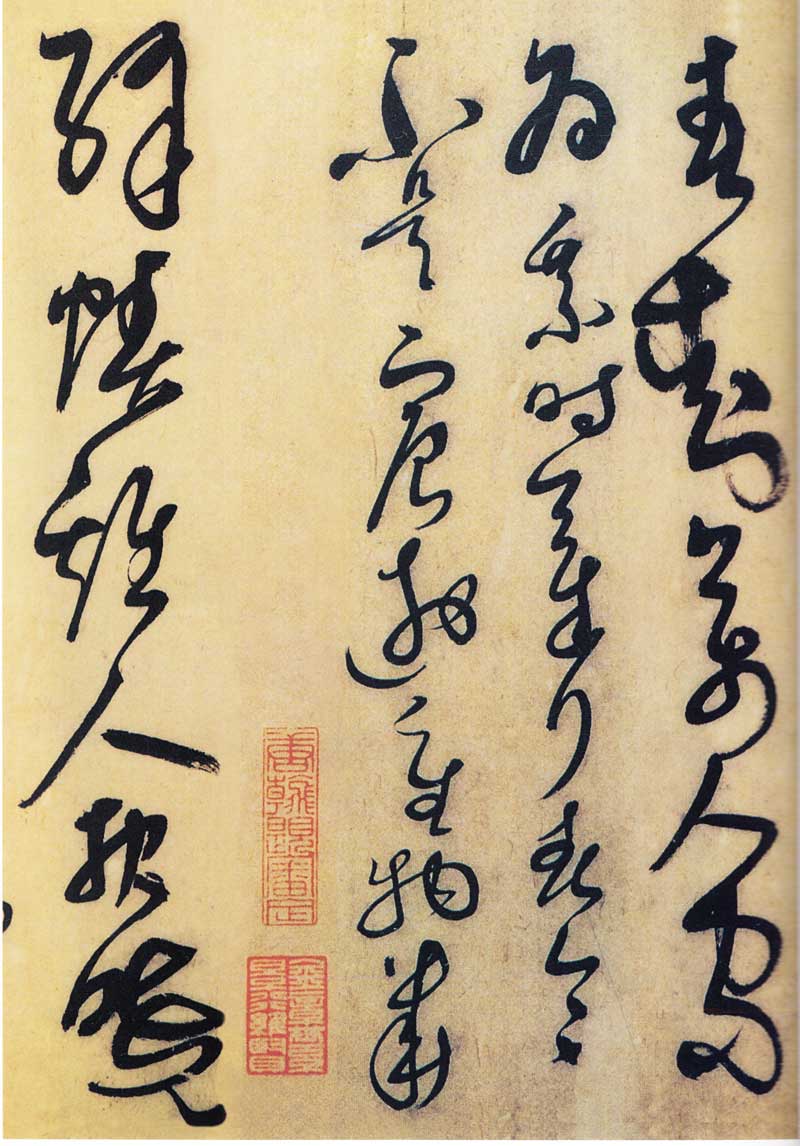
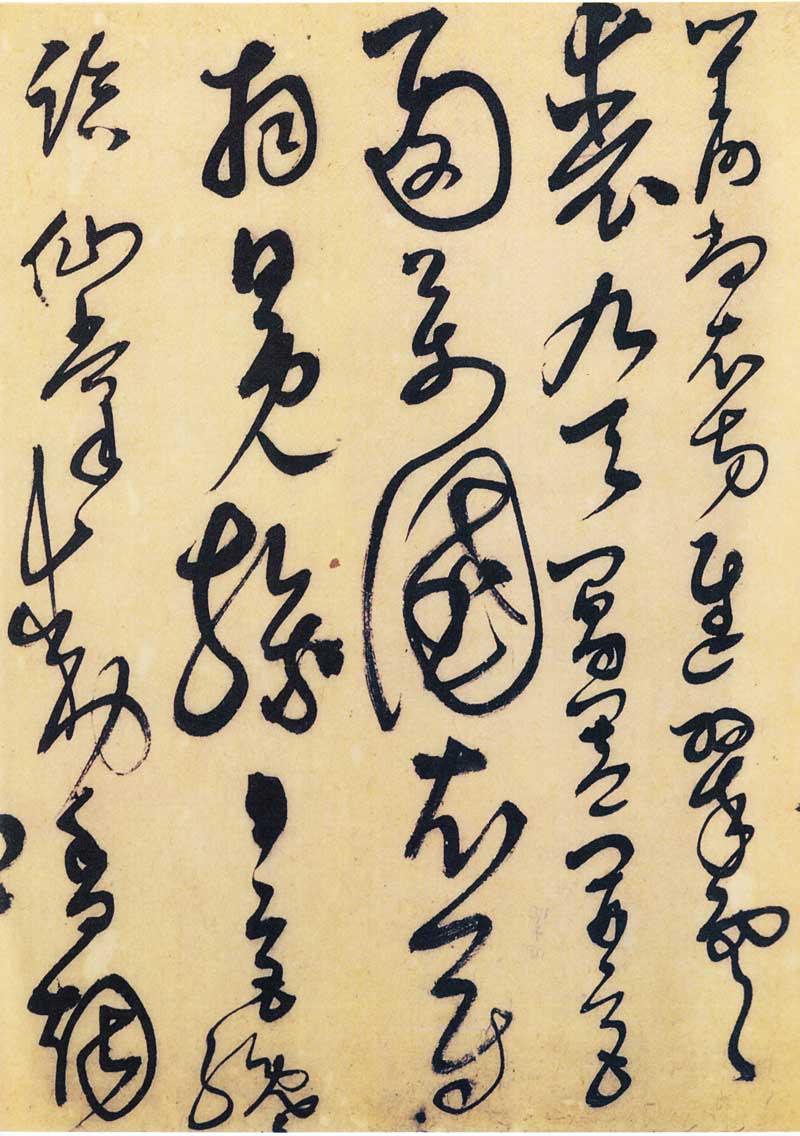
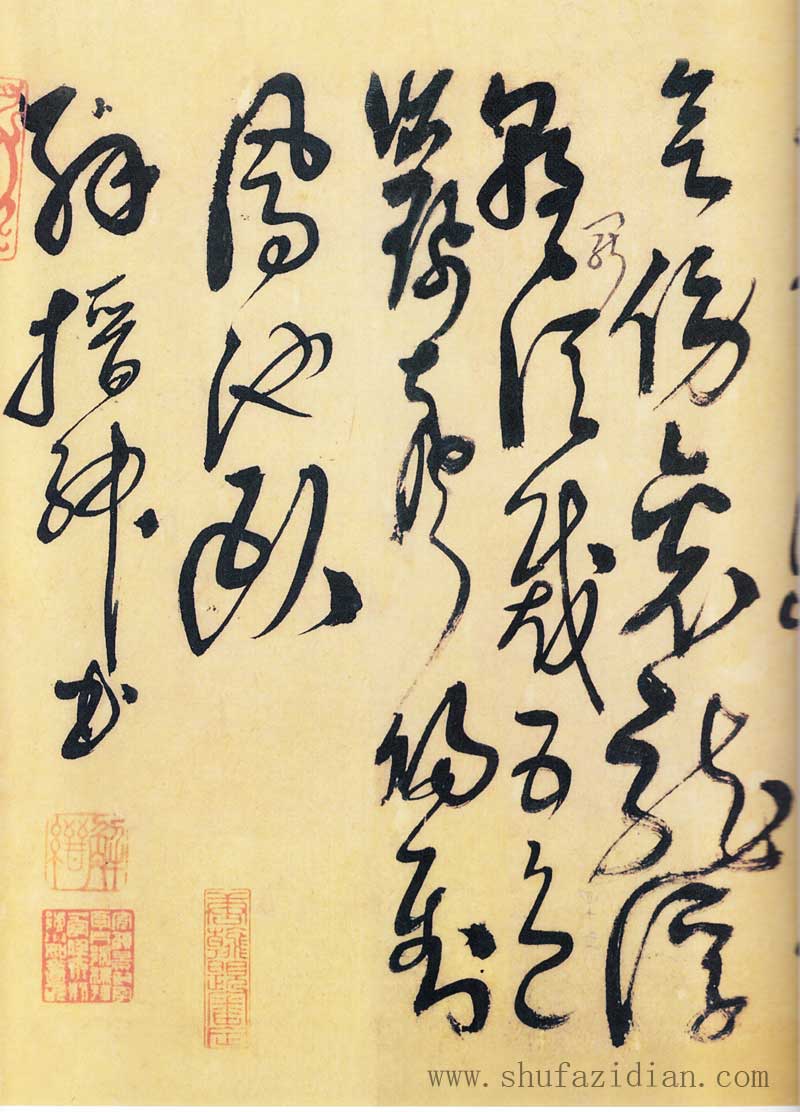
(Interpretation of Tang and Song poetry):
The road between the green locust trees gathers the fainting crows, and the envoys sit down and give tea. They return to the jade hall to clear up their sleepless nights. The crape myrtle flowers bloom at the beginning of the moon. The autumn light of silver candles paints the screen coldly, and the small light fan flutters at the flowing fireflies. The sky is as cold as water at night. I lie down and watch the Altair and Vega. If the mountain is not high, there will be immortals, and if the water is not deep, there will be dragons and spirits. I am the only one who is happy in this humble room. The steps on the terrace are green, the grass is green on the curtains, there are scholars talking and laughing, and there are no white people coming and going. You can tune the plain qin to read the Golden Scripture, without the clutter of silk and bamboo, or the labor of writing documents. Zhuge Liang of Nanyang, Yunting of Western Shuzi. Confucius said, "How ugly is this?" On the city, spring clouds cover the garden walls, the river pavilion is quiet and fragrant in the evening, the forest flowers are covered with spring rain, rouge and wet water, the waterlilies are carried by the wind and grow green, Longwu's new army is stationed deep in the chariot, and the hibiscus palace is filled with incense. When will this money meeting be ordered, the beautiful lady will be drunk for a while. Outdoors, he has a handsome face and purple sleeves hanging down, looking up at the throne to lead the court ceremony. The fragrance floats in the hall, the spring breeze turns, the flowers cover thousands of officials and the beautiful scenery moves, the day leaks rarely hear the news from the high pavilion, the sky is happy, and the officials know that every time the middle palace leaves to return to the east province, Kui Long will be sent to the Phoenix Pond. The sun shines on the golden list at Tianmen, the red feather flag is clear in the Spring Palace, the palace grass is slightly worn, and the incense sticks finely on the hairspring. The clouds near Penglai are often of five colors, and there are also many magpies when the snow remains. The courtiers returned to Qingsuo slowly, and left their meals calmly every night. The autumn wind in the shogunate is clear day and night, and light clouds and sparse rain pass over the high city. When the leaves are in bloom, the vermilion leaves are falling, and the moss grows on the steps first. There are towers again that carry the dusk scenery, and the bells and drums are not laborious to announce the new weather. The flowers in Huanhua Stream are smiling, and they are willing to trust me and keep their names anonymous. The spring beauty of Jinjiang River is coming to everyone, and the clear autumn in Wu Gorge is mourning. I am recalling the past, Yan Pushe, and we welcome the Chinese envoy to Wangxiangtai. The Lord's grace is expressed in three ways, and the Lord's order is clear. The terrain of Western Shu is dangerous in the world, and safety requires the best resources. There is a handsome man in Weiyang in Huaihai. His gold medal and purple ribbon illuminate his youth. He can command things to bring things back to heaven and earth, and he can train strong soldiers to move ghosts and gods. Xiangxi cannot be returned to Guan Yu, and Hanoi is especially suitable to borrow from Kou Xun. Ask calmly about the quiet side of the pilgrimage, don't say that Jianghan has heavy destiny. The wind is strong, the sky is high, the apes are screaming in mourning, and the white birds are flying back from the clear sand in Zhugistan. The endless falling trees rustled, and the endless Yangtze River rolled in. Wandering With Melancholy, a century on stage alone and sick. Difficulties and hardships make your hair more complex, and your wine glass becomes muddy when you are depressed. The King's Terrace rests on Bashan Mountain, and the ten thousand-foot-long ladder can still be climbed. In spring, the orioles are singing in the bamboos, the fairy dogs are barking in the white clouds, the blue rocks of the Qingjiang River are sad, and the young stamens are full of flowers. People are singing and shepherding today. I come here and don't know where to go. It's hot and snowy upstairs, the sparrows are flying high to celebrate the new achievements, the blue windows are misty (wet), the red gongs and floating clouds are thin and light, the axes and curtains are beautiful, and the teapots are scattered and have a clear rank. Since the public has more free time, he has extended his visit to Zuojiang River, and the Han Dynasty has been filled with eternal sentiments. Xieluanyu came out of a thousand gates, looking back at the willow pavilion, the garden was full of flowers, the emperor was in the clouds, the city was surrounded by twin phoenixes, and in the rain, there were spring trees and tens of thousands of people, in order to take advantage of the good times and carry out the spring order, it was not a luxury tour. The chicken man lowers his head to announce the dawn, and then he goes into the green clouds while raising his clothes. Qiu Jiutian opened the palace. The palace and the clothes of all nations. I worship the beautiful sun and beauty, and move the cigarette in the immortal palm. If you want to float next to the dragon, you must plant five colors after court. When the imperial edict came back, Fengchitou read the gentry's letter.




























